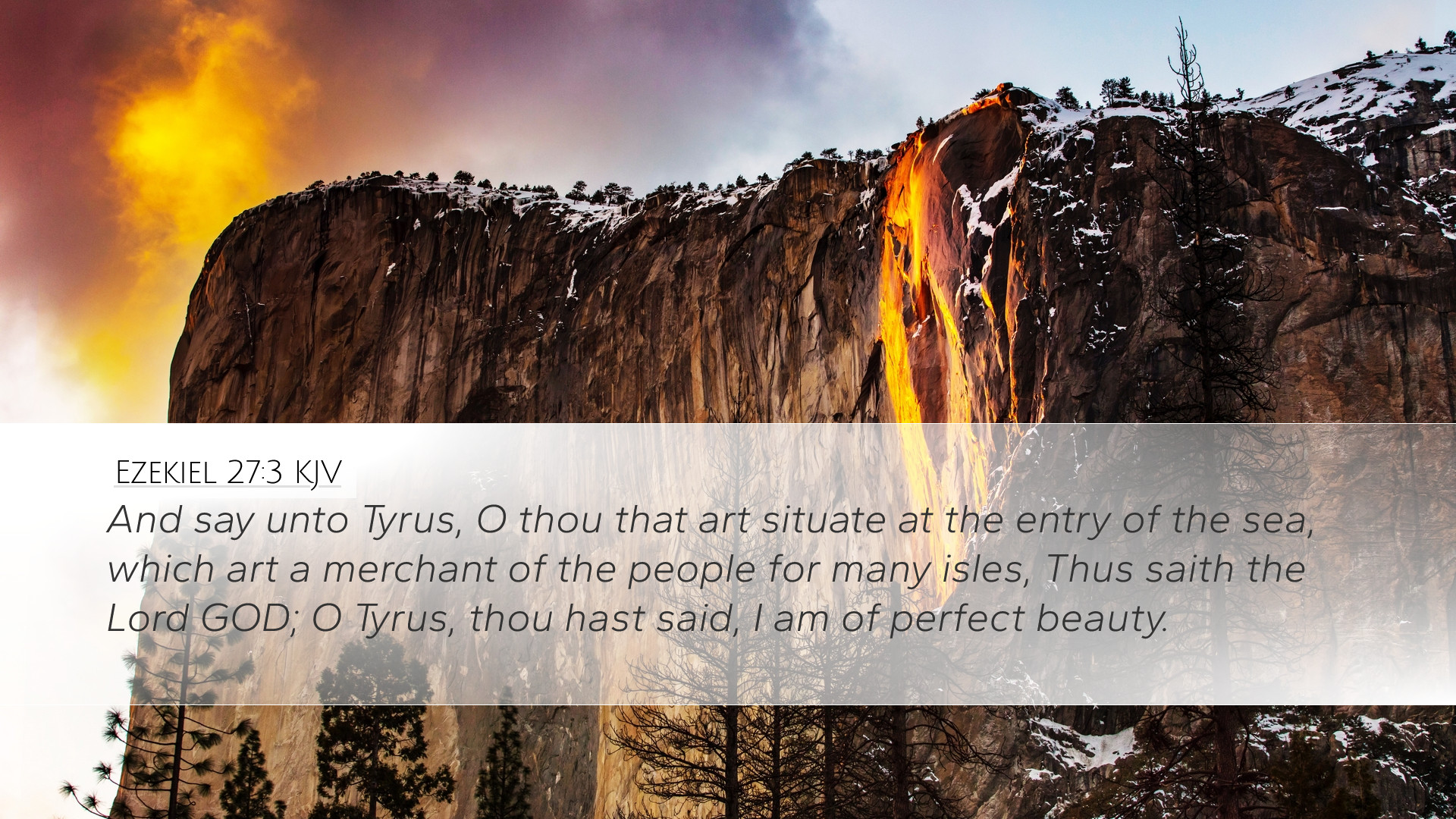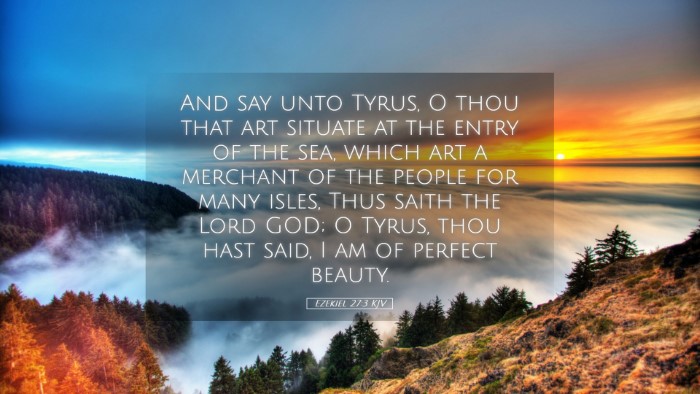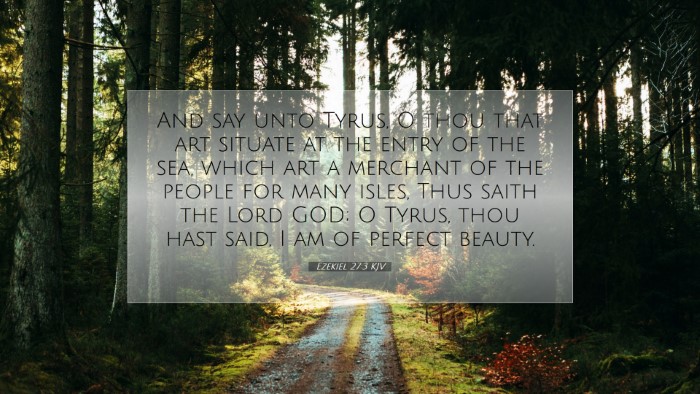Ezekiel 27:3 Commentary
Bible Verse: "And say unto Tyrus, O thou that art situate at the entry of the sea, which art a merchant of the people for many aisles, Thus saith the Lord God; O Tyrus, thou hast said, I am of perfect beauty."
Introduction
The commentary on Ezekiel 27:3 provides deep insights into the prophetic message directed towards Tyre, a wealthy and influential city known for its maritime trade. This verse introduces the theme of Tyre's pride in its beauty and prosperity, setting the stage for the prophetic declarations that follow. The context of this passage emphasizes God's judgment against nations that boast in their strength and wealth.
Historical Context
This verse is situated within a section of Ezekiel where the prophet speaks against various nations. Tyre, located on the Mediterranean coast, played a critical role in international trade. Its geographical position at "the entry of the sea" made it a hub for commerce. The city's affluence gave rise to a distinct culture of pride, leading to neglect in spiritual matters and disobedience to God. Historical references to Tyre come from sources outside the Bible, which affirm its trading prowess and cultural influence during its peak.
Insights from Public Domain Commentaries
Matthew Henry's Commentary
Henry emphasizes Tyre's situation as indicative of its commercial significance. He notes that by addressing Tyre directly, Ezekiel highlights the city's arrogance. Tyre's claim to "perfect beauty" serves as a stark reminder of the dangers of pride. Henry elaborates that beauty associated with prosperity can lead to moral decay, as the citizens of Tyre relied on their wealth instead of God.
Albert Barnes' Notes
Barnes interprets this verse as a prophetic announcement that condemns Tyre’s hubris, interpreting the phrase “merchant of the people” to mean that Tyre's influence extended over many nations. He alludes to the idea that the city's economic power was a source of its prosperity, yet it blinded them to their impending judgment. Barnes stresses that the text serves as a reminder of the ultimate sovereignty of God over earthly powers.
Adam Clarke's Commentary
Clarke presents a deeper theological implication regarding Tyre's maritime significance and wealth. He argues that God often uses prosperous nations as a lesson for others. He elucidates that "the entry of the sea" symbolizes not just a physical location but also represents a gateway to unparalleled opportunities, which Tyre exploited greedily. Clarke’s examination provokes readers to consider how success can lead to spiritual blindness and neglect towards God’s commandments.
Thematic Interpretation
The overarching theme of Ezekiel 27:3 revolves around the juxtaposition of human pride against divine judgment. The verse serves as a wake-up call for nations (and individuals) placed in positions of power and wealth. It underscores that all achievements are ultimately subject to God’s authority. Insights drawn from the commentaries encourage readers to reflect on their reliance on materialism and the fleeting nature of earthly beauty.
Application for Modern Readers
Pastors and theologians can draw parallels between Tyre's situation and contemporary society, where material success often leads individuals and nations to forget their dependence on God. The commentary on Ezekiel 27:3 invites modern believers to self-examine their values and priorities. Are they, like Tyre, entrusting their identity and security to wealth, or are they recognizing their need for God in all aspects of life?
Conclusion
Ezekiel 27:3 serves as a powerful reminder of the transient nature of beauty and wealth. Through the insights gained from respected theologians, readers are challenged to confront the reality of spiritual blindness that can accompany pride in prosperity. The prophetic words directed towards Tyre not only inform us of historical events but also resonate with ongoing themes relevant to faith and dependence on God today.


